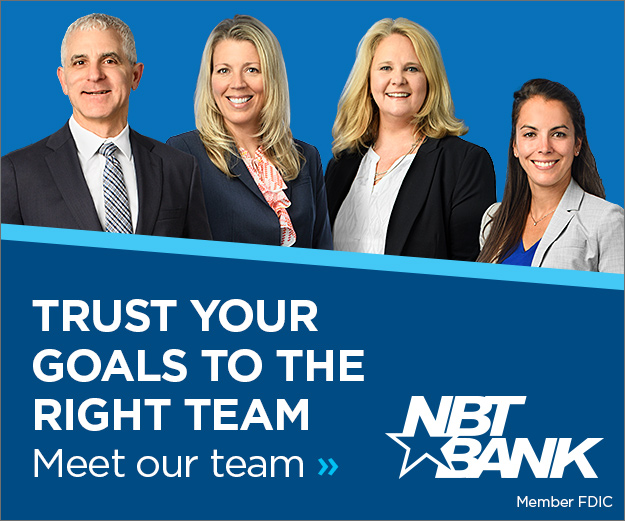By Judie Jacobson ~

Steve Rothman
WEST HARTFORD – As founder and principal of My Coach at Work, Steven Rothman’s focus is on coaching those new to their jobs to develop the skills and confidence needed to find success and satisfaction at work.
Over the course of a career dedicated to helping people become their best professional selves, Rothman has worked in corporate communications, taught at the university level, designed on-the-job training programs, developed online education materials and coached executives and managers to remember that when they refer to “resources,” they must consider time, money, and most importantly, human beings.
Rothman, who holds a Bachelor’s degree in communication and a Master’s in management, has helped clients attain their goals in Fortune 100 companies, not-for-profit organizations, and small and medium sized businesses. Industries include, but are not limited to: technology, healthcare, financial services, manufacturing, and entertainment.
A resident of West Hartford, Rothman has been a member of Congregation Beth Israel for more than 25 years. He recently spoke to the Jewish Ledger about his work at My Coach at Work.
Q: How would you describe what you do?
A: For 35 years I’ve been involved in helping people become their best selves in their work place. I started initially in corporate communication, moved onto executive coaching and, over the years, online education. It’s always been about how can you be your most effective self so you can feel like you are accomplishing something. Do you want to enrich your self-esteem and make a positive contribution to the organization you’re working for, or leave because that’s the best thing you can possibly do for yourself.
Q: Do you work with any one type of employee in particular – such as college grads or seasoned execs?
A: For years I worked with senior executives and corporations, but that market has dried up. Corporations are not investing in their management the way they used to. On an informal basis, when I was in an organization working with a senior manager I would often be approached by younger people who were having issues and they would ask for advice. Now, I work with people from about the age of 22 to 35. It is not as much about age as it is about how long they’ve been in a position. Often, every time you change your position your context changes, your responsibilities change and how you need to behave changes.
Q: Is it particularly difficult right now because of the job market?
A: Well, I’m not in job placement. I come in once you’re in the job and you find out that this is a world you’ve never been in before, and that is where I can be particularly helpful. Or, you find out that this isn’t the job you wanted. I can help you find the value of being there for a while and get everything you can out of it before you move on.
You should always be learning and you should always be prepared for what the next opportunity might be. It’s not like years ago when you might have five jobs in your lifetime — and they might all be with the same company. Today that can change every two years. You’re reinventing yourself because the marketplace is so different than it used to be.
Q: Is a good part of your work making sure that someone is happy in their job?
A: Let’s say productive and learning. Happiness is a choice – you can choose to be happy at what you’re doing or you can choose to be miserable. However, if you are being productive and you are learning you can gain from it and understand that this isn’t the last place you are going to be. So, while you’re there, what’s the most you can gain from that experience? What are the choices? Most young people don’t understand what choices they actually have, and how they can negotiate with their bosses to get those assignments that will help them grow.
Sometimes I will get a call from somebody who has just started a job who says: “I have 36 things to do; I don’t know which comes first and I don’t know who to turn to get direction on how to get this done. I’m lost. I’m drowning.” Something I learned early on is the greatest compliment you can give to someone is to ask that person for help. So, I’ll say, “Let’s write a script for what you will say to your boss.” Remember, your boss is often only a few years older than you are, with only a few years more experience. He or she is likely to be just as insecure as you are because they’re in a new position too. So we figure out how to best approach your boss so that your boss will help you help your boss shine. Now, you’re the teacher’s pet. Now, your boss starts investing in your success because he knows that your success is his success.
My job is to help you understand that you are valuable; you were hired for a reason; you bring skills to the table. So, you’re going to do the stuff you like, and then you’re going to work harder to do the stuff you don’t like so that you can learn how to do it and, when you move up, you learn how to delegate it so you don’t have to do it anymore.
My work is very in the moment, very contextual. There are lots of wonderful books out there, but you read them hoping that someday you’ll need that paragraph on page 23. When I work with a client we’ll skip to whatever page of whatever is going on – tell me the context of what’s going on; give me the words your boss used when he or she told you this and then we’ll work from there.
Q: Does this apply across the board, regardless of what the industry is?
A: Yes. I’ve had clients who are working in manufacturing, the fashion industry, the entertainment industry, hi-tech fields…for profit, not-for-profit. This is mostly about human interaction. It’s not about the work they’re doing; it’s about how they go about doing their work.
My greatest strength is with people who are at work – and I don’t care what kind of work. I don’t care if you took your first job as a barista at Starbucks — there’s a lot to learn behind the counter at Starbucks that has nothing to do with making coffee…you can learn a lot about customer service; about interacting with co-workers. I don’t care how many internships you’ve done internships are good, they’ve put you in the workplace, but you’re not working, nobody gets fired from an internship unless they really do something inappropriate.
Q: Is there ever a time when you say this is not working, time to start looking?
A: Absolutely yes. What I often tell my clients is, while a resume is becoming less and less important, it’s not the be all and end all it used to be, you should keep a journal of your work, so that every time you get a new assignment you write down what the assignment was, what you did and what the outcome was. Because you always need to be prepared for the knock on the door when the headhunter calls, or you always need to update your LinkedIn profile because that’s the primary business social networking tool.
Q: Is it always better to have a job before moving on? Should you keep your job until you have a new job?
A: It’s always best to stay learning. If you find yourself unhappy in a job and you’re not learning anything, well then if you can find a positive learning experience you should. You need to be getting up every morning and going someplace where you are experiencing what it is to work?
Q: Is there always something to learn from a job?
A: Absolutely. It is in my nature to take risks. Whenever I went to a professional development seminar and they asked for a volunteer my hand always went up. I knew I was going to be the person who learned the most in the room. So, regardless of what job you’re on, there’s always something to learn – even if what you learn is what bad management looks like.
Q: You deal mostly with under-35 set…but do you have any words of wisdom for the over-35 set?
A: Yes. Accept that it is a different world and you need to adjust to it. You need to reinvent yourself…as I am reinventing myself. You need to look at the skills that you have and repackage them in a way that makes sense. You need to continue to find meaning in your life.
I believe that there are always things to learn from a job whether you’re over or under 35. I know that If I don’t learn something in a day, I’ve failed that day.
To find out more about My Coach at Work visit www.my-coach-at-work.com or emal srothman@my-coach-at-work.com.








 Southern New England Jewish Ledger
Southern New England Jewish Ledger








